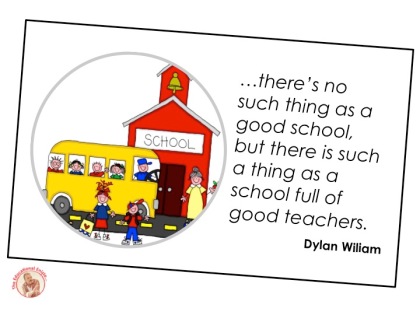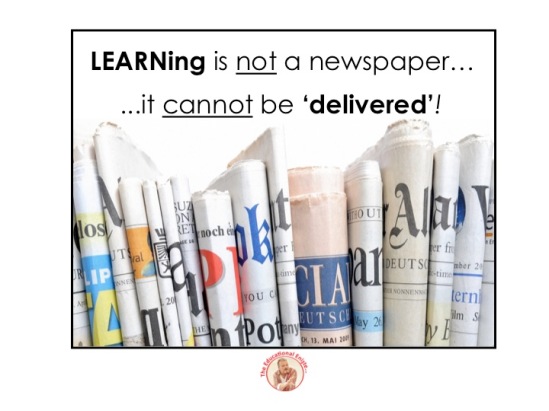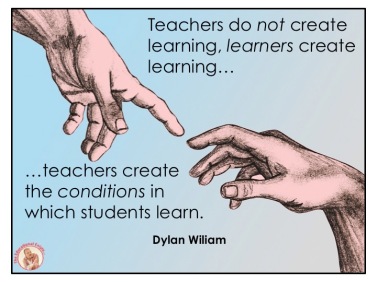So…just to prove that all those quotes you can pull up (if you google ‘procrastination’) are hogwash…here you go:

If you want to build a GREAT school…
8
Thou Shalt ‘begin with the end in mind’ and ensure that your school is built on a focussed and clearly stated purpose – and make sure that all members of the school community understand, share and are committed to this purpose and the goals of the school…

8
Thou Shalt believe in the transformative power of LEARNing, place LEARNing at the heart of your decision-making andwalk-your-talk…

8
Thou Shalt recruit the best TEACHers you can, retain them (at all costs) and renew their talents, skills and knowledge at every opportunity you find…

8
Thou Shalt plan, implement and renew acurriculum / assessment framework that emphasises LEARNing the ‘right’ things in the ‘right’ way…

8
Thou Shalt provide caring and effective leadership, create the conditions for wider shared-, teacher-, and student-leadership – and evaluate the quality of this leadership in terms of the level of trust you build and the amount of LEARNing co-created across the school…

8
Thou Shalt create an environment and climate that is organised, secure and safe – yet provides for risk-taking, creativity and imagineering at the student, classroom, departmental and school level…

8
Thou Shalt create a culture that is driven by professionalism, collaboration, and stakeholder involvement – and is fuelled by an ethos of feedback, improvement and results… 

8
Thou Shalt build and maintain a classroom-focussed LEARNing culture grounded on high expectations for both students and TEACHers, dialogic TEACHing practices and an approach to the adoption of EdTech driven by ‘fitness-for-purpose’ and ‘LEARNing first, TECHnology second’…
8

8
Thou Shalt adopt a research and evidence-based approach tochange and planning – and balance the use of external best practices and internal research findings, as well as ‘big’ and ‘small data’…

8
Thou Shalt use a range of policies, processes, and practicesdesigned to evaluate and enhance the quality of decision-making, curriculum and assessment systems, classroom teaching, professional learning communities, allocation of resources, and stakeholder involvement across the school…

8
That’s 10, right?
As I was boiling all the Commandments down, I did ask myself whether I need to ‘spell them out’ more. I hope they are clear…as I hinted, they are all backed by solid research and evidence-based practice (EBP) – but I have seen them ‘work’ and know they ‘matter’!
Can I rank them – in terms of importance or priority? Not really – but I’d be interested to see how you might…or (even more) see if you would add any others…










Comments (1)SIGN IN OR REGISTER TO COMMENTFOLLOWSubscribe to comments via RSS
Sign in to comment. Not a member? Register.